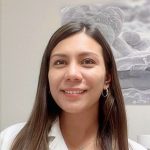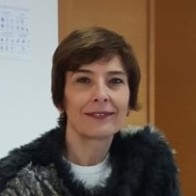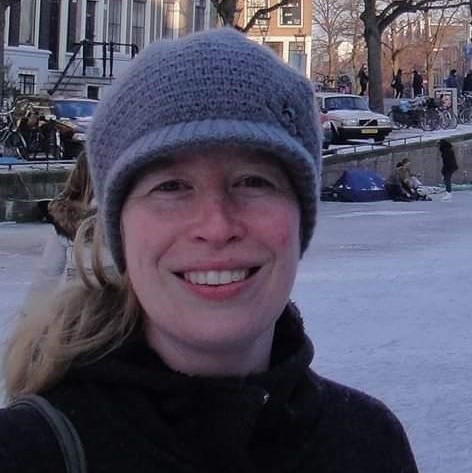Seminar: “Systematic analysis of the expression landscape of Marchantia transcription factors”

- Master seminar
- Dr. Facundo Romani (Department of Plant Sciences, University of Cambridge (UK))
- Organized by: Prof. José Manuel Pérez ()
- December 2, 2022, 11:30 a.m.
- IB Assembly Hall, Edif. Vinalopó-UMH
Conference: “Systematic analysis of the expression landscape of Marchantia transcription factors”
Next Friday, December 2, at 11:30 a.m., a research conference entitled “Systematic analysis of the expression landscape of Marchantia transcription factors” will take place in the Assembly Hall of the Bioengineering Institute, located in the Vinalopó building on the Elche campus within the seminar program of the Biotechnology and Bioengineering Master’s Degree and the Bioengineering Doctoral Program.
The conference will be given by Dr. Facundo Romani, a researcher in the Department of Plant Biology at the University of Cambridge (United Kingdom) and is organized by Professor José Manuel Pérez Pérez, Professor of Genetics in the Department of Applied Biology and Principal Investigator at the Bioengineering Institute.
Dr. Facundo Romani focuses his research in the field of Plant Development Biology, in the laboratory of the prestigious researcher Prof. Dr. Jim Haseloff, pioneer of Synthetic Plant Biology (https://haseloff.plantsci. cam.ac.uk/).
Brief description of the talk
Marchantia polymorpha is a liverwort located at the base of the evolutionary scale of terrestrial plants and in recent years has become an excellent model system for the application of gene editing and massive gene silencing techniques. The Marchantia polymorpha genome presents low levels of genetic redundancy, with many families of transcription factors represented by unique paralogs, making it an attractive system to characterize gene families that show high genetic redundancy in other plant species, such as Arabidopsis thaliana. Based on new transcriptional data recently obtained in M. polymorpha, the expression of all transcription factor genes at different stages of development will be presented in this talk. Through coexpression studies, some of the gene regulation networks related to cell differentiation and the response to hormones in this species have been defined.
Event “DIVULGANOBEL Explicando los Nobel 2022”
The Institute of Bioengineering at Miguel Hernández University (IB-UMH) invites you to participate in the 3rd edition of the event “DIVULGANOBEL- Explicando los Nobel 2022”, that will be held on Monday 28th November at 11:00, in Salón de Actos of IB-UMH. The event will consist of three dissemination conferences to explain the transcendence of the Nobel Prizes 2022 in Physiology or Medicine, Physics and Chemistry. It is specially intended for master’s and PhD students, faculty staff, as well as the general public. Program available at:
http://divulganobel.edu.umh.es/
The event, which is organized by IB-UMH, is supported by the Spanish Society of Genetics, the Spanish Royal Society of Physics and the Spanish Royal Society of Chemistry, with funding from Vicerrectorado de Investigación through its Doctorate School, and the PhD programs in Bioengineering and in Industrial and Telecommunications Technologies of UMH.
We welcome your participation!
Seminar: “3D printed calcium silicophosphate scaffolds for trabecular bone repair”

- Master Seminar
- Dr. July Andrea Rincón López (CINVESTAV-Mexico)
- Organizer: Prof. Piedad de Aza ()
- November 15, 2022, 11:30 a.m.
- IB Assembly Hall, Edif. Vinalopó-UMH
On 11/15/2022, at 11:30 a.m., a research conference entitled “3D printed calcium silicophosphate scaffolds for the repair of trabecular bone” within the seminar program of the Master’s Degree in Biotechnology and Bioengineering and the Bioengineering Doctoral Program. The conference will be given by Dr. July Andrea Rincón López, Director of technological research at DINSO-MX (Diabetic integral solutions-Mexico), and is organized by Prof. Piedad N. De Aza Moya, researcher at the Institute of Bioengineering from the UMH.
Dr. July Andrea Rincón López is a biomaterials scientist, a Physical Engineer from the Technological University of Pereira (Colombia) and a graduate of the Center for Research and Advanced Studies of the National Polytechnic Institute in Mexico (CINVESTAV-Querétaro) from the master’s and PhD in Material Sciences-specialty. She completed a diploma in Business Development and Technology-Based Entrepreneurship. Dr. Rincón-López is focused on the development and application of bioceramics for tissue regeneration. Within his experience in the development of bioceramics, his participation as scientific leader of the project “Technological Scaling of Bioceramics to Induce Bone Regeneration and Wound Healing” developed by the Center for Industrial Engineering and Development (CIDESI) and financed by the National Council of Science and Technology of Mexico (CONACYT), from November 2020 to September 2022.
Brief description of the talk
“The manufacture by 3D printing of bioceramic scaffolds with mimetic characteristics of trabecular bone from the Hydroxyapatite, Silicocarnotite and Nagelschmidtite phases is presented. For the 3D printing process, bioceramic pastes have been developed and through rheological characterization, their printing capacity was determined. The in-vitro biological performance has been evaluated with human umbilical cord endothelial cells (HUVEC) and human fetal osteoblasts (HFOB 1.19), through viability, adhesion and cell differentiation studies. The results obtained showed that the Nagel phase induces a higher production of proteins associated with bone formation and vascularization. Finally, Nagel phase scaffolds were implanted in Wistar rats, with the aim of evaluating the bone regeneration process. The results obtained show the potential application of these phases in the development of implants for bone regeneration”
Awards and honours
- “25 Women in Science Latin America 2022” Award by the multinational 3M.
- Award “Best Pitch for technology-based enterprises AIT Mexico-Switzerland with the NWBone project: Crafting the future in bone grafts, 2021”.
- Award “Scholarship from the Ibero-American General Secretariat (SEGIB) and the Carolina-Spain Foundation to carry out a research stay, 2019”.
- Award “Young Professors and Researchers of Banco Santander-Spain, 2012”.
- Scholarship from the National Council of Science and Technology of Mexico (CONACYT) to pursue a master’s degree (2015-2017) and a doctorate (2018-2021).
Seminar: “Chemical mixtures: challenges for toxicology and risk assessment”

- Master seminar
- Dra. Biljana Antonijević (Department of Toxicology “Akademik Danilo Soldatović”, Faculty of Pharmacy, University of Belgrade, Belgrado (Serbia))
- Organized by: Prof. Javier Esteban ()
- January 27th, 2022, 11:30 a.m.
- IB Assembly Hall, Edif. Vinalopó-UMH
Conference: “Chemical mixtures: challenges for toxicology and risk assessment”
On January 27th, 2023, at 11:30 a.m., a research conference entitled “Chemical mixtures: a current challenge for Toxicology” will take place in the Assembly Hall of the Bioengineering Institute, located in the Vinalopó building on the Elche campus. and risk assessment” within the seminar program of the Biotechnology and Bioengineering Master’s Degree and the Bioengineering Doctorate Program. The conference will be given by Dr. Biljana Antonijevic (Full Professor, Department of Toxicology, University of Belgrade – Faculty of Pharmacy), and is organized by Prof. Javier Esteban Mozo, researcher at the Institute of Bioengineering of the UMH.
Dr. Biljana Antonijevic focuses her research in the field of environmental pollutants, persistent organic compounds, endocrine disruptors, pesticides, chemical mixtures, and risk assessment for human health. She has published 134 articles and has an h-index of 22.
Brief description of the talk
“Permanently, we are all exposed to various mixtures of both anthropogenic and naturally occurring chemicals. Modern toxicology is not a “single chemical science” anymore, and hundreds of publications are already in the scientific literature on mixture toxicology. Early development of the area of toxicology of chemical mixtures refers to the period from approximately the late 1970s to the early 1990s. Starting from the period of time, when the toxicology studies of chemical mixtures were mainly descriptive in nature, mixture toxicology has been moving towards the application of genomics and extensive use of in silico tools. From the mechanistic point of view, complex effects elicited by a mixture of toxic substances may be linked not only to molecular mechanisms of individual components but also mixture toxicity can be attributed to some distinct molecular pathways. An integrated approach to risk assessment addresses situations of multichemical, multimedia, multiroute, and multispecies exposures. Assuming the additive type of joint activity, this concept has been successfully applied in establishing toxic equivalency factors (TEFs), as a way to express the relative potency of e.g. OPs and dioxins and dioxin-like substances. In all cases where the resultant toxic effect is greater than the effect of single substances, two basic levels of interactions are possible: toxicodynamic and toxicokinetic. An improved understanding of the mixture toxicity can greatly improve risk estimates and reduce uncertainties.”
Awards and honours
Other information of interest
Seminar: “Endocrine disruption in wild fish in English rivers past and present”

- Master seminar
- Dr. Alice Baynes (Department of Life Sciences, Brunel University, UK)
- Organized by: Prof. Javier Esteban ()
- January 13th, 2023, 11:30 a.m.
- IB Assembly Hall, Edif. Vinalopó-UMH
Conference: “Endocrine disruption in wild fish in English rivers past and present”
The conference will be given by Dr. Alice Baynes, from the Center for Pollution Research and Policy, College of Health, Medicine and Life Sciences (Brunel University London), and is organized by Prof. Javier Esteban Mozo, researcher at the Institute of Bioengineering from the UMH.
Dr. Alice Baynes focuses her research in the field of ecotoxicology, endocrine disruption, chemical pollution, aquatic pollution, aquatic biology and ecology, fertility and development of fish and gastropods.
Brief description of the talk
A wide range of natural and human-made chemicals interfere with the normal functioning of endocrine systems of both humans and wildlife. Exposure to such endocrine disrupting chemicals (EDCs) can cause disruptions in development, alter sexual differentiation and function, and impact adversely on reproduction. Some of the most persuasive evidence for adverse effects of EDCs in wildlife comes from the identification of widespread feminisation of male fish linked with exposure to estrogenic substances emanating from wastewater treatment works (WwTW) effluents. Many studies have been from English rivers, where high frequencies of feminised fish were found in survey in the early 1990’s–2000’s. Advanced treatment technologies and green chemistry solutions to improve EDCs removal from wastewaters have been investigated with varying success. More recent surveys, revisiting English river sites that previously had feminised males, have also been conducted to establish how current levels of effects in wild fish compare with historic data.
Awards and honours
Other information of interest
Treasurer of the UK Royal Society for Biology (UK RSB). Member of the EFSA Working Group on Endocrine disrupting properties of pesticide active substances on humans and non-target organisms. Member of the OECD Expert Group on the retinoic acid signaling pathway.
CONFERENCE IN THE OPENING OF THE ACADEMIC YEAR 2022/23 OF THE MASTER IN BIOTECHNOLOGY AND BIOENGINEERING
We welcome you to the Opening of the Academic year 2022-2023, which will be celebrated on Monday 3rd October at 11.30h in room 0.2 of Altabix. Professor José Meseguer, Emeritus Full Professor of Universidad de Murcia, will deliver the conference “Neurology. Science and art in the work of Santiago Ramón y Cajal”.
More information: https://master-biotecnologia-bioingenieria.umh.es/2022/09/20/la-conferencia-del-profesor-jose-meseguer-inaugurara-el-master-universitario-en-biotecnologia-y-bioingenieria-2022-2023-de-la-umh/
Conference on Functional Genomics in Woody crop species
On Tuesday September 27th, at 11:30 h in the confere room of the Institute of Bioengineering (IB), the conference entitled “Functional Genomics in Woody crop species: Multi-omic approaches to identify economical traits” will be delivered by Dr. Fatemeh Maghuly, from the University of Natural Resources and Life Sciences de Viena (Boku), organized by IB researcher Sara Jover Gil.
The research activities of Dr. Maghuly are centered on Functional Genomic in Plants, with a h index of 20 and having publushed over 50 scientific papers in this field. During the month of september Dr. Fatemeh Maghuly is a visiting researcher within the ERASMUS + program in the lab lead by IB researchers Héctor Candela and Sara Jover.
Más información sobre esta conferencia en https://docs.google.com/presentation/d/e/2PACX-1vRYXbjYjxQBC-RQpu2cD7KLv2iBStxxJ8SXBRYwj21tUN7wxRHUeEjueDuNgK8XQfaTmg9CtzcpLaUI/pub?start=false&loop=false&delayms=3000
Conference on Functional Genomics in Woody crop species
Prof. Fatemeh Maghuly, from the University of Natural Resources and Life Sciences (BOKU) of Vienna will deliver the conference entitled “Functional Genomics in Woody crop species: Multi-omic approaches to identify economical traits”. The conference will take place on Tuesday, September 27th, at 11:30 h in the conference room of the Institute of Bioengineering (IB) and has been organized by Dr. Sara Jover Gil. The research interests of Dr. Maghuly are focused on Functional Genomics in Plants, a field in which she has published over 50 scientific papers, with an h index of 20. Dr. Maghuly has stayed as a visiting researcher in the lab of IB researchers Héctor Candela and Sara Jover in the frame of the ERASMUS+ program.
Más información sobre esta conferencia en
https://comunicacion.umh.es/2022/09/26/la-umh-organiza-una-conferencia-sobre-la-genomica-funcional-en-especies-lenosas-cultivadas/
Conference on Artificial photosynthesis by means of carbón nanomaterials
Artificial photosynthesis by means of carbón nanomaterials is the title of the conference that Prof. Francis D’Souza, from University of North Texas, will deliver on Monday July 18th at 11:30 in Salón de Actos of the Institute of Bioengineering (IB). This activity is organized by IB’s director, Prof. Ángela Sastre.
Dissemination Working Day on genetics
Dissemination Working Day on genetics “Mendel: de guisantes y genes” to celebrate the bicentennial of Gregor Mendel’s birth. Organized by IB researchers in the Genetics section of the Applied Biology Department, Sara Jover Gil and Pedro Robles Ramos, this event will be on Monday 23rd May from 16h to 19h in the Aula Magna of edificio Altabix and will be trasmitted through the UMH Youtube channel.
Nicolás Jouve de la Barreda, Lluís Montoliu Juan y Gemma Marfany Nadal, reknown researchers and disseminators of genetics, will speak about the past, present and future of some of the branches in this discipline.
More info in the announcing pannel and in the link to the web of the UMH 25th Anniversary:
https://25.umh.es/evento/mendel-de-guisantes-y-genes/
Registration in:
https://forms.gle/fWRzKhD4AQTT8RmA6
–>
A one-day conference to commemorate the 200th anniversary of Gregor Mendel’s birth, ‘Mendel: de guisantes y genes’, will be held next Monday, May 23rd, from 16 to 19 h at Aula Magna (Altabix building, Elche Campus, UMH). This genetics dissemination conference has been organized by the Assoc. Profs. Sara Jover Gil and Pedro Robles Ramos, from the Applied Biology Department and Bioengineering Institute.
During the conference, Nicolás Jouve de la Barreda, Lluís Montoliu Juan and Gemma Marfany Nadal, relevant researchers and experts in genetics communication and dissemination, will review the past, present and future of some branches of this discipline.
The conference will be live streamed on the Youtube UMH channel. More information about the conference and registration at:
https://25.umh.es/evento/mendel-de-guisantes-y-genes/
Registration in:
